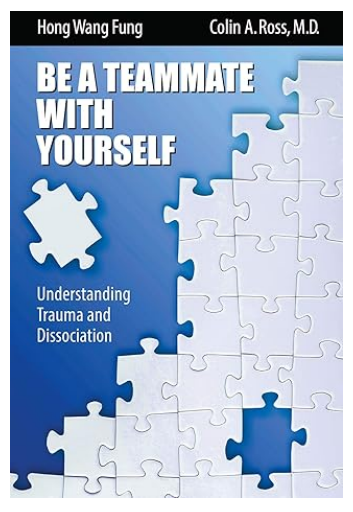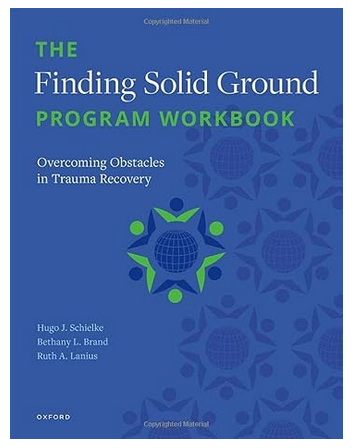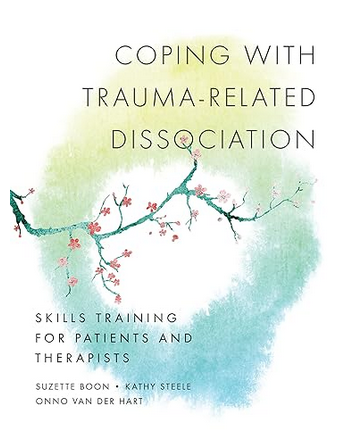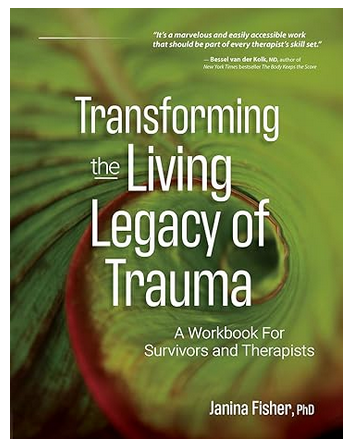Four Self-Help Books for DID
(Summary) Looking for ways to make progress in DID recovery between therapy sessions—or even without a therapist? In this video, I review four books written by leading experts in dissociation and trauma: Be A Teammate with Yourself, Finding Solid Ground, Coping with Trauma-Related Dissociation, and Transforming the Living Legacy of Trauma. These resources explain DID with compassion, teach essential regulation skills, and provide practical exercises to support healing at your own pace.
Why DID is often missed in therapy
If you don’t have a therapist but want to make progress on your recovery from DID, these four books may be of help. Even if you have a therapist, there’s only so much that can get done in a weekly hour of therapy. Working between sessions can help you make more progress each week.

Be A Teammate with Yourself
The first book is Be A Teammate With Yourself. It is co-authored by Dr. Colin Ross. Dr. Ross is a psychiatrist who specializes in working with DID specifically in DID inpatient programs. This book is short but it is packed with helpful information. I like this book because Dr. Ross explains a lot of the experiences of DID in a kind and compassionate way. He’s encouraging and he makes it clear that healing is possible. Of the four books, this is one I believe is less likely to be triggering to people.

Finding Solid Ground Program Workbook
The next book is Dr. Brand’s Finding Solid Ground Program Workbook. Dr. Brand is an expert in treating DID and has been involved in research to develop treatments specifically for DID. This workbook is focused on helping you develop skills critical for regulating your system. Better regulation of your system means less chaos for those early in their recovery journey. I believe this book is also less likely to be triggering. It explains each concept clearly and with great kindness, compassion, and encouragement. I think it might almost feel like having your own DID coach. This is a book I frequently recommend to my DID clients and so far, every single client who has gotten this book and worked their way through it has reported it to be extremely helpful. I will note that my clients have found it helpful to read a chapter between sessions and then come to session to discuss it with me. I am able to answer their questions, clarify anything that was confusing, and reinforce the progress they are making. If you have a therapist and decide to get this book, I recommend talking with your therapist about each chapter as you work your way through.

Coping with Trauma-Related Dissociation
Coping with Trauma-Related Dissociation is another book which has a lot to offer a person healing from DID. It starts with a section that explains DID and dissociation. It then moves to a section that focuses on foundational skills for self-regulation. There’s a whole lot more beyond this, as well. The authors mention that it is possible to become triggered while reading this book as you may remember traumatic events. It’s simply not possible to heal from DID without occasionally being unexpectedly triggered, so this is not a knock against the book. The authors, noted experts in treating DID, expect that you will read this book as part of individual or group therapy. I believe you will get a lot more out of this book if it is part of individual or group therapy.

Transforming the Living Legacy of Trauma
Finally, I want to talk about the book Transforming the Living Legacy of Trauma, written by Dr. Fisher, an expert in treating DID. This is a rather short workbook which will help you to understand why trauma from your childhood still seems to present and fresh in many ways. It helps you to identify the ways your traumatic experiences affected your brain. One entire section is specifically about DID and dissociation and another is focused on healing. Each chapter in this workbook has specific exercises and worksheets to help you either figure out how something applies to you or to help you record what you’ve learned about your situation. As with the others, I recommend working on this with a therapist if possible.
If you’ve read any of these books, would you leave a comment below about your experience with it? Thanks!
Frequently Asked Questions
What are the best books for DID recovery?
Some highly recommended resources include Be A Teammate with Yourself, Finding Solid Ground Workbook, Coping with Trauma-Related Dissociation, and Transforming the Living Legacy of Trauma. These books are written by leading trauma experts and offer compassionate, practical guidance.
Can I work on DID recovery without a therapist?
Yes, but with caution. Workbooks and self-help books can provide valuable tools and insights. However, healing can stir up painful memories. If possible, working with a trauma-informed therapist alongside these books can provide extra safety and support.
Are these books triggering?
Every survivor is different. Some books, like Be A Teammate with Yourself and Finding Solid Ground, are often considered less triggering and more beginner-friendly. Others, like Coping with Trauma-Related Dissociation, may bring up memories but also offer strong skills for regulation.
Which book should I start with?
If you’re new to DID recovery, Be A Teammate with Yourself or Finding Solid Ground may be gentler starting points. If you’re ready for deeper skills work, Coping with Trauma-Related Dissociation and Transforming the Living Legacy of Trauma can be excellent next steps.
How can I use these books with my therapist?
Many survivors find it helpful to read a chapter between sessions and then discuss it in therapy. This allows your therapist to answer questions, clarify confusing points, and support you in applying what you’ve learned.
